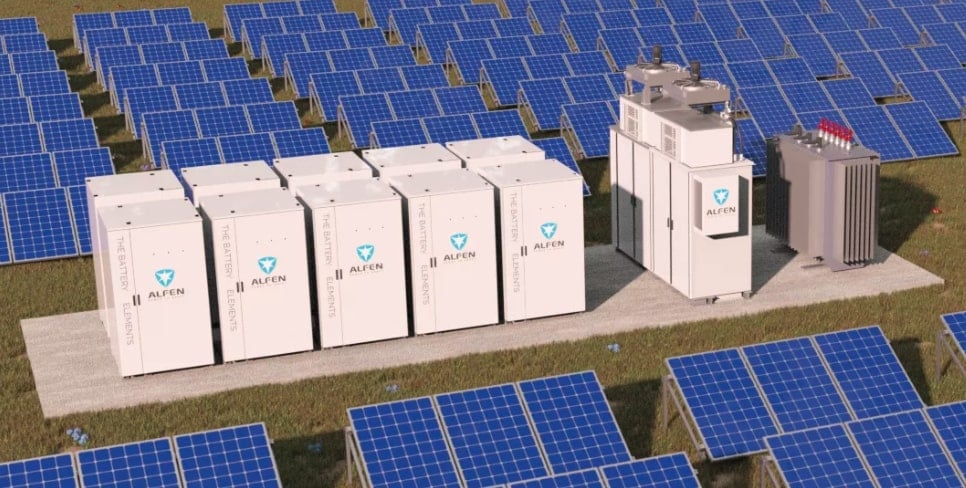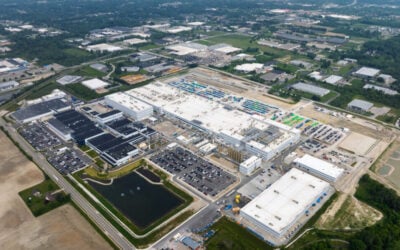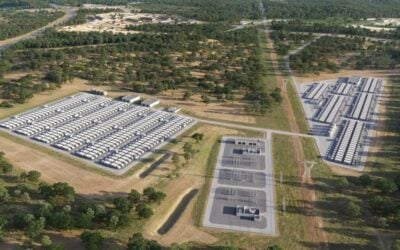
Energy storage and smart grid solutions firm Alfen is deploying a 30MW/68MWh battery storage project in the Netherlands for commissioning later this year, the largest under construction in the country.
The firm, which is also based in the Netherlands, will deliver a ‘The Battery Elements Energy Storage System’ for developer SemperPower’s Project Pollix project in Vlissingen. The companies are eying a commissioning date in the fourth quarter of 2023.
Enjoy 12 months of exclusive analysis
- Regular insight and analysis of the industry’s biggest developments
- In-depth interviews with the industry’s leading figures
- Annual digital subscription to the PV Tech Power journal
- Discounts on Solar Media’s portfolio of events, in-person and virtual
It is the largest battery energy storage project in the Netherlands under construction by megawatt-hours capacity, narrowly beating a 30MW/63MWh system that Rolls-Royce is set to commission before then. Both projects have durations that are a little over two hours.
SemperPower will develop, finance and operate the energy storage system while Alfen will manage design, supply, civil works, installation, tests and long-term maintenance for the project.
Michelle Lesh, chief commercial officer for Alfen said: “Supporting grid challenges caused by increased intermittency from renewables and continued load growth is critical to Europe’s energy transition’s long-term success. Battery energy storage systems like Project Pollux play a crucial role in making our grid future-proof and effectively manage demands on the grid.”
The largest operational system today is a 24MW/48MWh project owned by developer GIGA Storage, the technology of which was provided by global power technology firm Wärtsilä, inaugurated in October last year.
The need for energy storage is growing in the Netherlands as it brings on more wind and solar and decommissions its coal and gas plants, which is causing difficulties for grid operators in what is already a highly congested grid due to the Netherlands’ population density.
However, the market has been held back by high grid fees for energy storage projects, which are classed as a user of electricity and so have to pay grid electricity ‘transportation’ fees. These can amount to around 60% of operating expenditure (opex) for a project, versus single digit figures in countries where energy storage is exempt from the most onerous charges, like Germany, Belgium and the UK.
Another grid challenge for energy storage in the Netherlands is that the grid operator has to take into account all generating assets’ peak output when deciding whether to integrate new assets, meaning some local regions have reached limits for the feed-in of any new renewable generation or storage.
As previously reported by Energy-Storage.news, some battery storage firms are exploring the possibility of time-limited contracts with system operators where they would only be allowed to charge or discharge at certain times.
Projects online today can play in a grid ancillary service market of 115MW for FCR and around 350MW for AFRR – both of which can also be provided to other countries, expanding the available market – alongside other grid services and wholesale trading.
The two-hour-plus duration for the country’s first major projects outlined earlier indicates that the market is moving to a merchant, energy trading model relatively earlier than earlier-movers like the UK and Germany did. The UK market only really stared moving past one-hour durations as standard last year while most German projects still tend to be an hour, or a little more.






